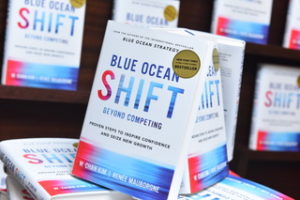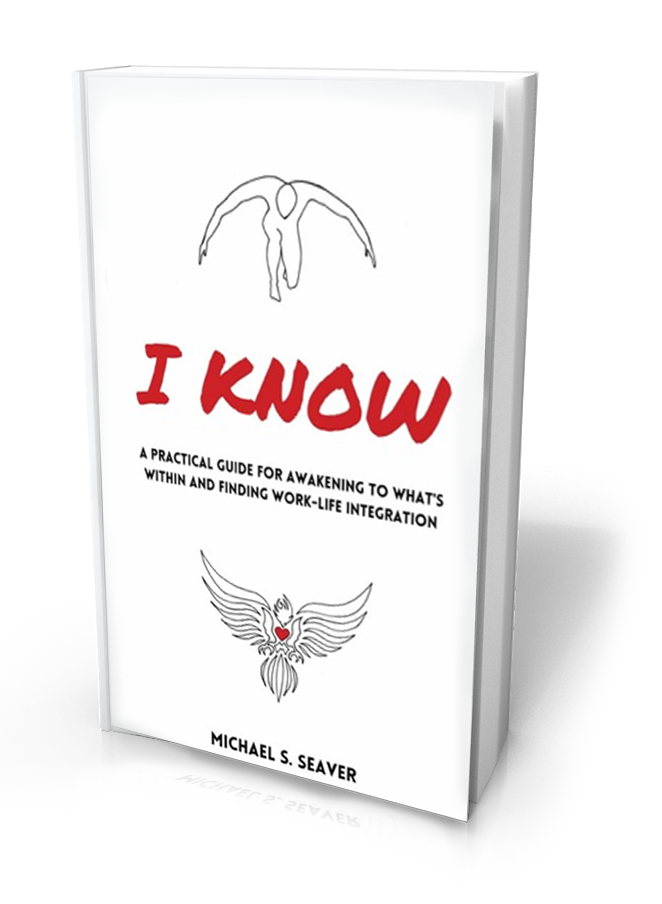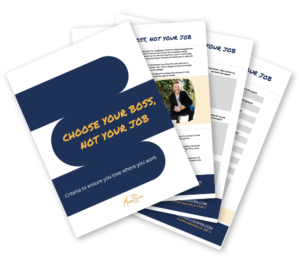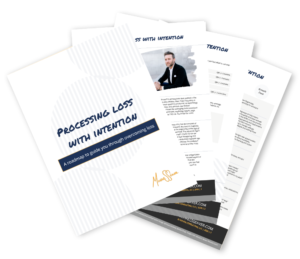W. Chan Kim and Renee Mauborgne wrote Blue Ocean Strategy as a way to describe how organizations could simultaneously pursue differentiation and low cost. The aim being not to out-perform competition in the existing industry, but to create new market space, thereby making the competition irrelevant. The authors believe that current competitive strategy is a structuralist theory of strategy where structure shapes strategy, but the 21st century route may be a reconstructionist theory of strategy where strategy shapes structure.
Although that seems unrelated to one’s career search, I believe there to be principles that transcend. So, how can an individual create a blue ocean career search?
Before I continue, check out Stuck in a Rut? How to Shift Your Career from Stalling to Success from the Blue Ocean Strategy team. It’s a tremendous step-by-step review of how to set your own rules to accomplish big goals.
Through understanding that submitting resumes on online portals only provides you access to 25% of all available open positions. Approximately 75% of filled positions are filled without being posted online, or the candidate is already chosen and the job is posted simply to meet EEOC requirements. Instead of reactively applying for jobs that have a good chance of already being filled, think of yourself as a consultant and create demand for your unique skill set. Loosely following Kim and Mauborgne’s outline below, consider implementing the following:
- Strategy Shapes Proactive Action – Create uncontested demand for your services by creating more than a paper resume and simply submitting it to numerous companies. Learn more about my tips for great multimedia resumes here. Start a blog and share your best ideas and practices on it. Give philanthropically and invite others to participate. Learn more here. Create a community of people who support you and openly recommend your work. Be active in various social media channels, but ensure your voice is consistent and humble. Serve on community and organization boards. Be involved in a variety of activities that push your brand into the community. Being proactively referred into a job is much better than reactively applying to one.
- Differentiation Makes Competition Irrelevant – What distinguishes you from other job seekers? What are the transferrable skills that make you indispensable? Foundationally, ensure that your resume clearly displays relevant keywords, states the scope of your accomplishments, and quantifies the results you impacted. Ask your LinkedIn connections for recommendations. The more voices you have behind you describing your value to the organization and community, the higher the chance you’ll get a call for an interview. Through personality assessments and 360˚ assessments, know and be able to describe how your behaviors, motivators, competencies, and acumen distinguish you from the crowd.
- Create New Demand for Your Transferrable Skills – Do homework on your target organizations. Gather roughly five pages of content on them. Review websites, customer reviews, annual statements, conduct informational interviews, find a Datamonitor report; do anything you can to learn what the organization’s weaknesses and opportunities are. Compare their needs with your values and transferrable skills, paying close attention to what you bring to the table that can make them money, save them money, or mitigate their risk. Whether filling an open position or having them create a new job for you, defining how you can be a strong cultural fit and assist them in achieving their goals will create new demand for your services.
- Get Paid More than Market Value – Rather than simply working for a salary and benefits, ask for other incentives tied to your performance. Whether you work for a salary or on projects for a fee, you are a consultant. There is no reason why you can’t ask for compensation driven by how much money you make or save the organization. Ask for stock options or an extra five days of PTO or an enhanced retirement pan. Whatever you desire, do not be afraid to ask. Because you are indispensable, you are worth it.
Put the above strategies in place so that you are aligning the whole system in pursuit of being distinguished and worth far more than market value. Realigning your strategy away from how you compare to other job seekers to how you can help the organization prosper is much more meaningful.
“The only way to beat the competition is to stop trying to beat the competition.”
If you haven’t read Blue Ocean Strategy yet… consider reading Kim and Mauborgne’s new book, Blue Ocean Shift. What I loved most about the new book was the focus on the human side of business (which is often overlooked) and the focus on the systematic five-step process. In fact, I loved it so much, I’m giving away five copies of the book. Enter to win one of five signed copies of Blue Ocean Shift. Tweet tagging @michaelsseaver and @blueoceanstrtgy, and letting us know you want to win. Winners will be notified via Twitter on the 30th of July. Further terms and conditions can be found here.







Connect with me